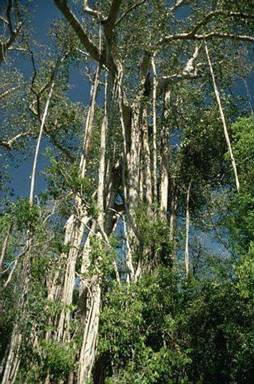Vastu Tips for Plants and Trees
Vastu Shastra being an ancient science deals in residential buildings, factories and industries. Vastu can be applied on flowers and plants in the house.
The plants play significant role in activating positive energy to our day to day life. Here is what Vastu says about plants.
- Tulsi or Basil plant is most powerful and auspicious plant. The plant should be located in the North, East and North-east of the house. Tulsi can be grown at the front or the back of the house.

Basil Plant (Tulsi)
- Banyan and Peepel tree are sacred trees so they should be planted near temple or sacred place.

- The trees should not be planted in front of the entrance of house.
- Big trees can be planted in the South and West portion of the house. They should not be too close to the building as they block sunlight and roots of the tree can damage foundation. The roots of big trees absorb sunlight and do not allow them to reach the house.
- Small trees can be planted in the East and North side. But no tree should be planted in North-east corner.
- Thorny plants should not be planted in the house as these plants except rose can have negative energy.
- The creepers should be planted near entrance door. It should not be raised on compound wall of the building. It is good to plant creeper in garden.

Creepers on the exterior of a home
- Avoid milky trees in the house as it may affect the health of family members.
- Flowering plants should be placed in the South-west portion of the house. Jasmine, Rose, Marigold, Champak, Mogra and Prijat are good around the house as it gives positive energy.
- Money plant should also be planted inside the house as it brings good luck to the house.
- No big tree should be planted in the centre of the house.
- A rock garden should be in southwest portion of the house, not in the northeast portion of the house.











